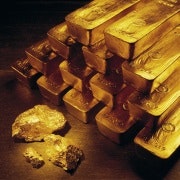The LME lawsuit that's metal as anything
A court case in London’s High Court of Justice brought by the Russian aluminium producer Rusal against the London Metal Exchange has laid bare the conflicting interests of producers and consumers in the business of buying and selling aluminium. It is a complex but rewarding story exhibiting capitalism red in tooth and claw.
The fine cast includes brewers like Coors, who buys aluminium cans for their lager, and Goldman Sachs, who makes plenty of money through their ownership of warehouses in which aluminium bought on the LME is stored.
The plot embraces disgruntled Senators in the US Congress, and ingenious lawyers in the City of London who claim that the LME’s proposal to make the aluminium market more efficient is a breach of Rusal’s human rights. No kidding.
We need to start the story at the beginning.
Producers like Rusal deposit the metal in a global network of warehouses licensed by the LME. The owners of the metal are charged precisely 51 cents per tonne per day in warehouses in Detroit, for example. Since millions of tonnes are stored in these warehouses, the rent provides a very comfortable income.
Warehouse space is taken by manufacturers of a wide range of products from beer cans to smartphones who intend to take delivery of the aluminium, and by speculators who have bought aluminium contracts in the expectation that the price will rise, but have no intention of taking delivery. There are plenty of these.
The aluminium price has halved since 2008 and has remained stubbornly low, but the expectation is that the price will rise. Speculators wait until it does, and low interest rates mean that they can finance the cost of staying put.
The consequence is that there is now so much aluminium stored in the warehouses that taking it out and putting it to use can take months -- as many as 20 months in Detroit, for instance. Queues have formed and are getting longer.
There is a way to jump the queue: to pay a premium on top of the LME’s market price. These premiums have been rising steadily, and now amount to nearly 20 per cent of the price.
Producers like Rusal collar the premium and banks like Goldman Sachs collect the rents. They gain; the manufacturers on the queue are frustrated; and in the end the consumer pays.
Dow Jones quotes Mick Madden of Novelis, a significant user: “It is incredibly inefficient,” he says. This is capitalism red in tooth and claw.
It is so inefficient that the US Congress is actively scrutinising the role of banks like Goldman Sachs. (The embarrassment proved too much for JPMorgan, which has sold its warehousing subsidiary.)
After a long period of inaction, the LME finally responded to the problem of artificially long queues in November 2013. They introduced ‘load-in, load-out’ rules, which mean that for every tonne newly lodged in a warehouse, a producer would be required to remove a tonne or more. Stocks would fall, queues would get shorter: good news for the manufacturer, and bad news for the producer since the premium would fall.
Falling premiums make life more difficult for the producers. They claim that if these fall too far, they will curtail production. None makes the case more insistently than Rusal, which accounts for 9 per cent of world production, and has borrowed $US3.7 billion to fund this dominant business.
Nothing perturbs a rich businessman more than the fear that his profits are being attacked. Few are richer than the main man at Rusal, the oligarch Oleg Deripaska. In a legal challenge issued in December to the LME’s rule-change, Rusal’s principal motive was to protect the company’s earnings and its ability to pay back its debts.
Rusal’s lawyers accused the LME of failing to consider alternative methods of reducing the queue, such as banning or capping rents in the warehouses. But the most startling element in Rusal’s complaint was that the LME’s rule-change was a breach of its human rights.
This interpretation of the European Convention on Human Rights is so astonishing that I asked the enterprising London lawyer who conceived the idea to explain Rusal’s case.
He referred me to Rusal’s spokesperson in Moscow, who declared: “The Convention gives every natural or legal person (her emphasis) the right to the peaceful enjoyment of its possessions. The LME’s decision to change the rules could, therefore, have interfered with Rusal’s economic interests in that it would have a direct impact on the price at which it can sell its products.” Up to a point, would be the polite reaction.
Justice Phillips, in London on 27 March evaded the human-rights defence by arguing that, since the LME’s consultation process had been flawed, it could not be allowed to introduce the load-out, load-in rule.
The LME is deciding whether to appeal this decision, or re-consult the membership about the rule change, presumably including the option to ban or cap rents. Meanwhile, both the premium and the LME price have risen (a contract can presently be had for $US1810 a tonne), and the length of the queues is unchanged.
As markets go, aluminium is not a great advertisement for capitalism, but one plausible conclusion is already clear. It is not Deripaska’s human rights that are threatened. It’s his profits.
Stephen Fay is a former editor of Wisden and author of books about the Bank of England and the collapse of Barings.













